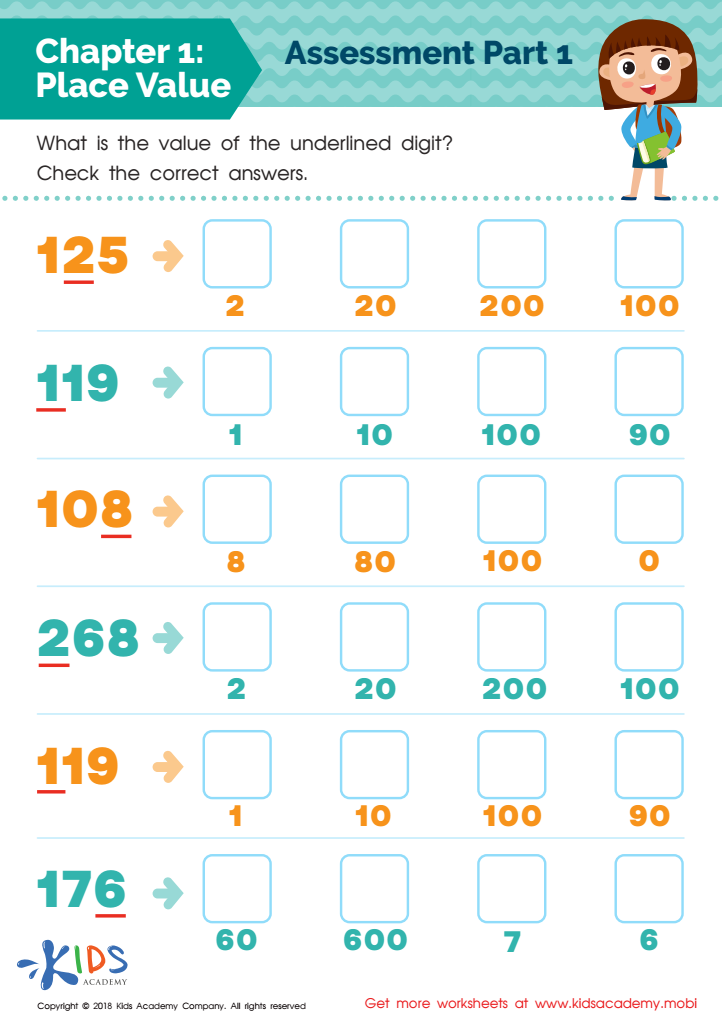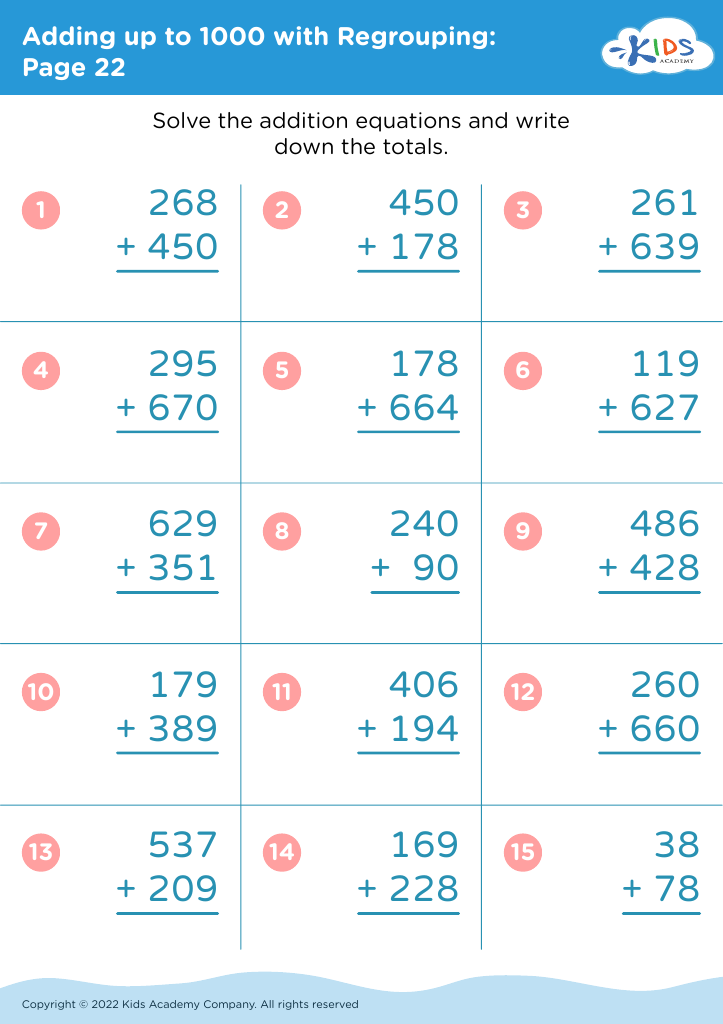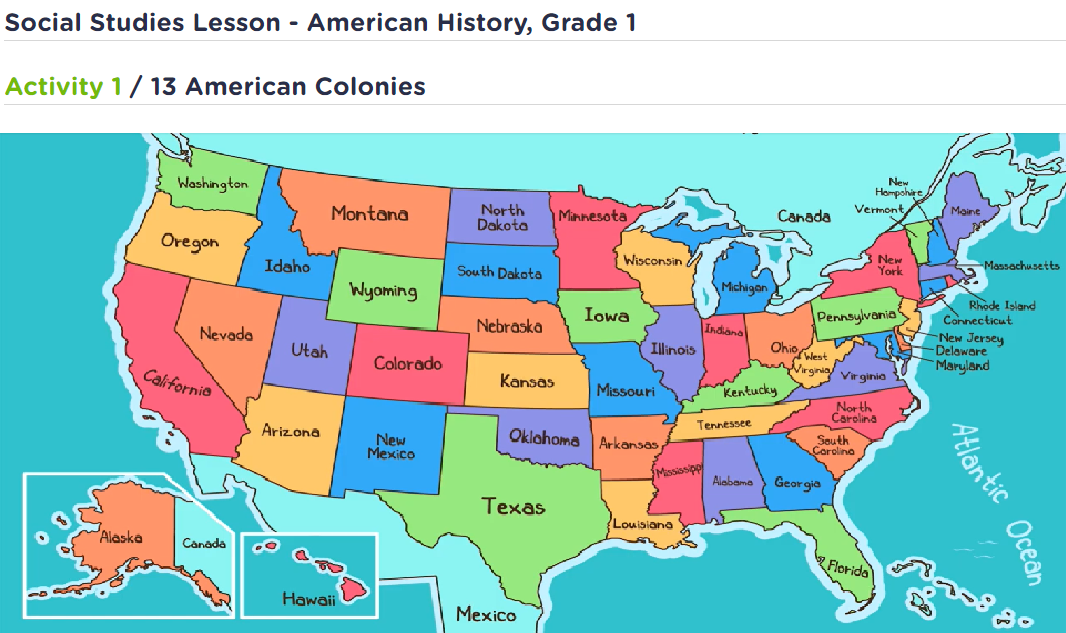Identify numbers Math Worksheets for Ages 4-7
3 filtered results
-
From - To
Explore fun and engaging "Identify Numbers Math Worksheets" for ages 4-7! Our expertly designed worksheets help young learners recognize and understand numbers through a variety of interactive activities. Perfect for little mathematicians, these worksheets make learning enjoyable with colorful illustrations and simple exercises that build confidence in counting and number identification. Ideal for both classroom use and at-home practice, our resources support development in foundational math skills. Set your child on the path to numeric success with our playful and educational worksheets. Visit our page to access a wide range of free, printable activities today!


Place Value: Chapter 1 Worksheet
Identifying numbers at an early age forms the foundational block of mathematical understanding for children aged 4-7. This vital skill influences their ability to participate in more complex mathematical operations and problem-solving activities as they progress in their education. When children can identify numbers, they gain confidence in their capabilities. This confidence fosters a positive attitude towards learning, cultivating inquisitive and engaged students.
For parents, supporting number identification aids in creating enriching learning environments at home. It joins everyday activities, like counting objects or reading number-based stories, seamlessly into their child's interactions, thus reinforcing classroom teachings and solidifying understanding.
For teachers, ensuring that children can recognize numbers prepares them for subsequent math concepts such as addition, subtraction, and multiplication. It equips them with the tools necessary to track quantities, follow instructions regarding numeric order, and understand concepts related to magnitude and value. Furthermore, early mastery of number identification can lead to improvements in other areas including logical reasoning, pattern recognition, and spatial awareness.
Addressing these skills early on paves the way for more nuanced and abstract mathematical thinking, thereby setting children up for sustainable academic success and lifelong love for math. Paying attention to this fundamental skill enhances overall cognitive development matured through focused, consistent, and interactive learning experiences.
 Assign to My Students
Assign to My Students




.jpg)













